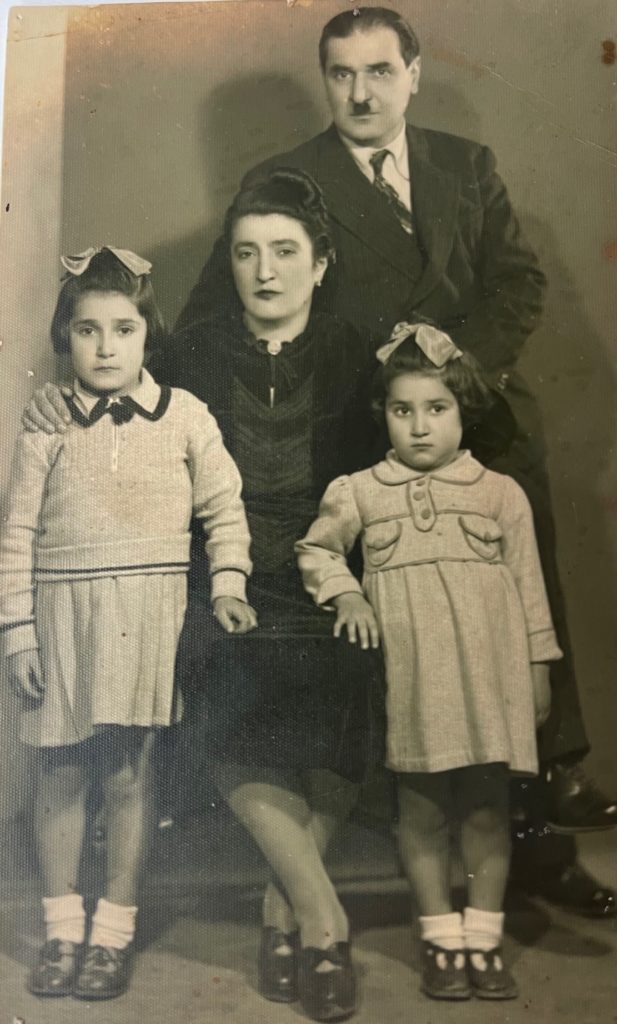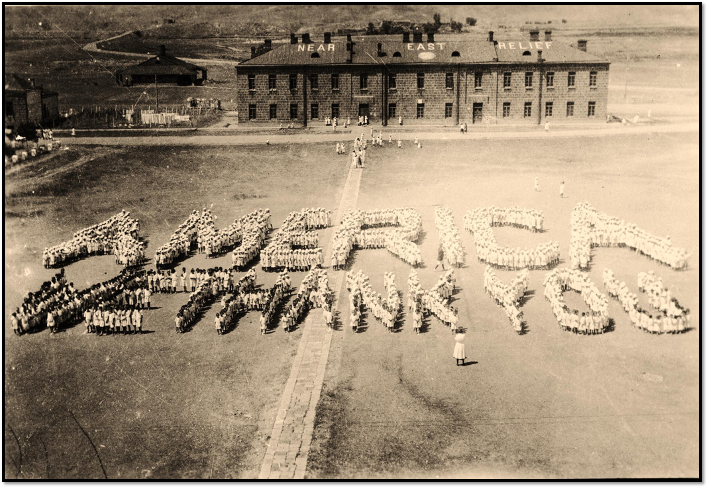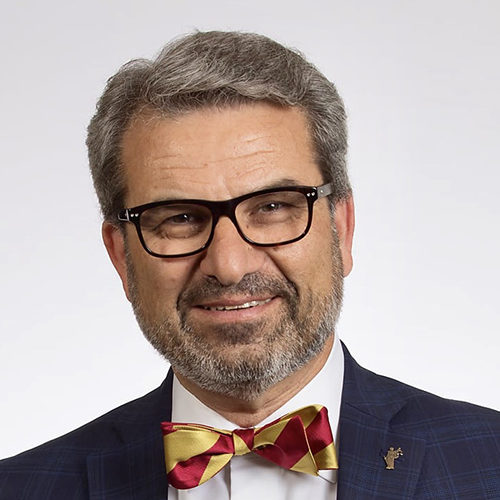Share This Article
Dear Mr. President, thank you! During your inauguration on January 20, 2021, I penned an open letter to request that you remain true to your lifelong pledges. On the 106th anniversary of the Armenian Genocide, you reclaimed America’s moral and legal authority over men’s inhumanity to men. The clarity in communicating a century-old truth fulfills your promise to lead with the “power of example.”
Today’s historic recognition begins to mark the closure of the unmarked graves all over Anatolia. In those graves are my great grandfather, a school board member, and my great uncle, a Merzifon College (American College of Mersovan) graduate and lecturer who were slaughtered without a trace. Among those who survived is my grandfather, who slit his own throat and cheated death.

I never knew my grandfather, who died well before I was born. He suffered from severe mental anguish in his 50’s, succumbing to a shattered heart for the murder of his family. The only memorable picture and phrase passed on through my mother is, “while I will never see recognition and justice, I will watch over my grandchildren who will make them a reality.” Mr. President, I worked more than 30 years of my professional life under the watchful eyes of my heavenly grandfather for the first phase of this reality. Thank you!
I thank you for making global human rights a priority for your administration. This day is significant not because I can bring back my ancestors but because we can collectively “recommit ourselves to preventing such an atrocity from ever again occurring.”
Indeed Mr. President, with strength, resilience, and open arms of countries like the United States of America, we survived and rebuilt our communities. We are not victims but living witnesses to men’s inhumanity to men. We remain vigilant against all hate here and abroad. For 17 years of my public life, I spoke about the importance of this vigilance against “evils of bigotry and intolerance.”
Mr. President, I will have the honor to thank you from the dais this Tuesday, April 27, 2021. The tone of my Armenian Genocide commemoration speech during our city council meeting will change from the usual heartbreak and disappointment to a renewed hope for the “power of example.” Mr. President, you taught my students and me a great lesson in leadership. Thank you! You also made our “America We Thank You” Genocide memorial dedicated to the memory of Ambassador Henry Morgenthau and the Near East Relief Foundation all that more memorable. We hope to erect that memorial on our Rolling Hills Estates, city hall grounds before the end of the year.

In a broader context, recognition, repentance, and humility make us human. I read a barrage of denialist and condemnation messages in the Turkish media today from most Turkish leaders. Nothing appears to have changed after 106 years. Garo Paylan, a Member of the Turkish Parliament, said, “When Turkey confronts the Armenian Genocide, it will no longer matter what other countries or parliaments have to say … We need to bring the pain of the Armenian people, to the land where it belongs, to Turkey. We have to face the pain of the Armenian people, and we must relieve this pain through justice. The Armenian people are waiting for justice.”
Mr. President, we are still waiting for justice. I began my advocacy to recognize the Armenian Genocide in the mid-1980s as a law student and later as a young lawyer. You made that recognition possible. You honor the memory of my ancestors with your compassion and leadership. Let us commit to truth and justice, to human dignity and rights, until we eradicate all genocides and hate with the continued but painful recognition of the past. Let us also remember that reconciliation requires justice informed by the hierarchy of crimes committed.
God bless you, and may God Bless our United States of America!
Most Respectfully,

Frank V. Zerunyan is a Professor of the Practice of Governance at the University of Southern California (USC) Sol Price School of Public Policy (USC Price) and Director of Executive Education at USC Price Bedrosian Center on Governance. Professor Zerunyan oversees USC’s Reserve Officers’ Training Corps (ROTC) as the Director and University Liaison for the U.S. Air Force, Army, Naval Reserves ROTC, and Nautical Science Programs.
Professor Zerunyan’s principal areas of expertise include governance, public-private partnerships, civic and ethical leadership, land use, medical regulation, negotiation, and executive education. He lectures locally and globally to build capacity and foster leadership among public executives worldwide. He is the author of books, book chapters, and many short articles published nationally, internationally, and on USC Price’s “Faculty Perspectives.” Professor Zerunyan is often quoted in the media and is a USC resource for journalists as an expert in governance and leadership. He is also an expert on public administration at the United Nations Innovation Branch (formerly Capacity Building Branch).
For his influential advisory role in the Republic of Armenia, he was awarded LL.D. Doctor of Laws – Honoris Causa by the Public Administration Academy of the Republic of Armenia. Professor Zerunyan designs curricula and teaches at the American University in Armenia, Yerevan State University, and the Vazgen Sargsyan Military University in Armenia, with an honorary rank of colonel. He also teaches for the U.S. Navy at the U.S. Naval Service Training Command.
Professor Zerunyan serves on the editorial boards of the Public Administration Scientific Journal for the Republic of Armenia and the Ukrainian Law Review. He is on the board of councilors of Anahuac University Law School, Xalapa, Mexico (Consejo Consultivo de la Escuela de Derecho).
Professor Zerunyan earned his Doctor of Jurisprudence (Doctor of Laws) degree from Western State University College of Law and his Bachelor of Arts degree from California State University Long Beach. He also completed his advanced legal education in Corporate Taxation at the University of Southern California Law Center (USC Gould). He is a graduate of the California League of Cities’ Civic Leadership Institute.
Professor Zerunyan, trained and practiced as a lawyer, is a four-term Mayor and Councilmember in the City of Rolling Hills Estates, California. He serves on several city, county, and regional policy boards and committees. He was also a gubernatorial appointee under Governor Schwarzenegger, serving 38 million medical consumers on the Medical Board of California.

